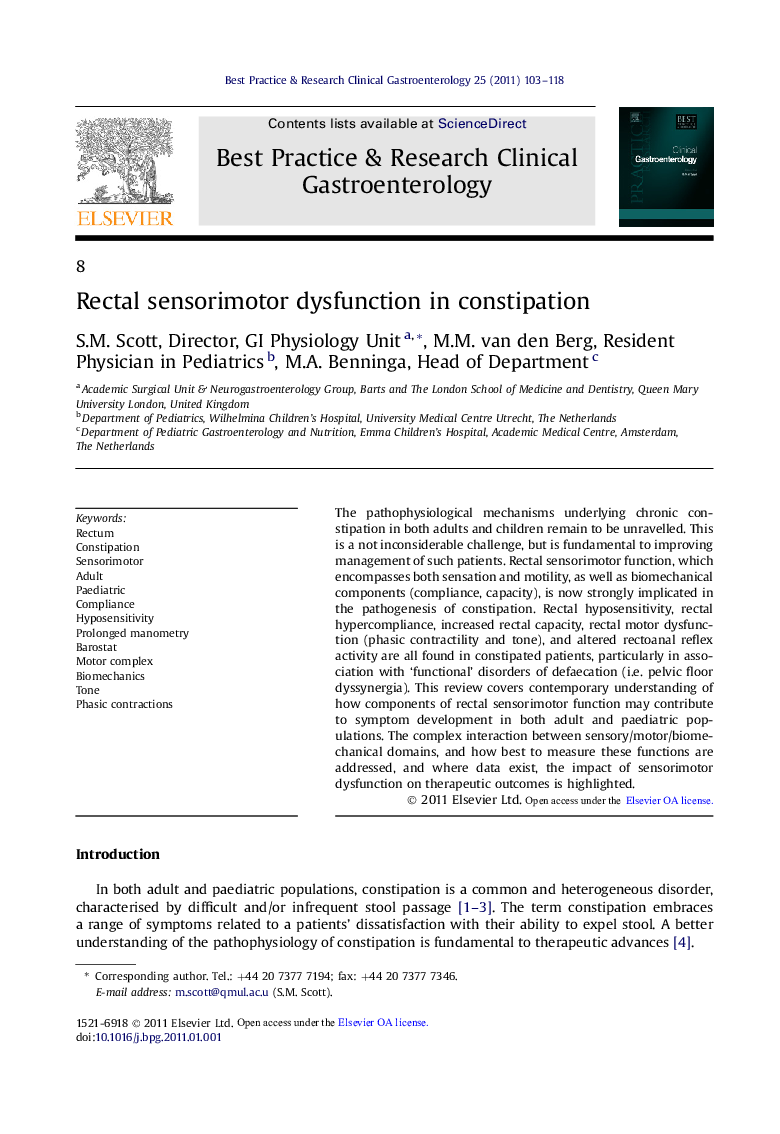| Article ID | Journal | Published Year | Pages | File Type |
|---|---|---|---|---|
| 6086471 | Best Practice & Research Clinical Gastroenterology | 2011 | 16 Pages |
The pathophysiological mechanisms underlying chronic constipation in both adults and children remain to be unravelled. This is a not inconsiderable challenge, but is fundamental to improving management of such patients. Rectal sensorimotor function, which encompasses both sensation and motility, as well as biomechanical components (compliance, capacity), is now strongly implicated in the pathogenesis of constipation. Rectal hyposensitivity, rectal hypercompliance, increased rectal capacity, rectal motor dysfunction (phasic contractility and tone), and altered rectoanal reflex activity are all found in constipated patients, particularly in association with 'functional' disorders of defaecation (i.e. pelvic floor dyssynergia). This review covers contemporary understanding of how components of rectal sensorimotor function may contribute to symptom development in both adult and paediatric populations. The complex interaction between sensory/motor/biomechanical domains, and how best to measure these functions are addressed, and where data exist, the impact of sensorimotor dysfunction on therapeutic outcomes is highlighted.
